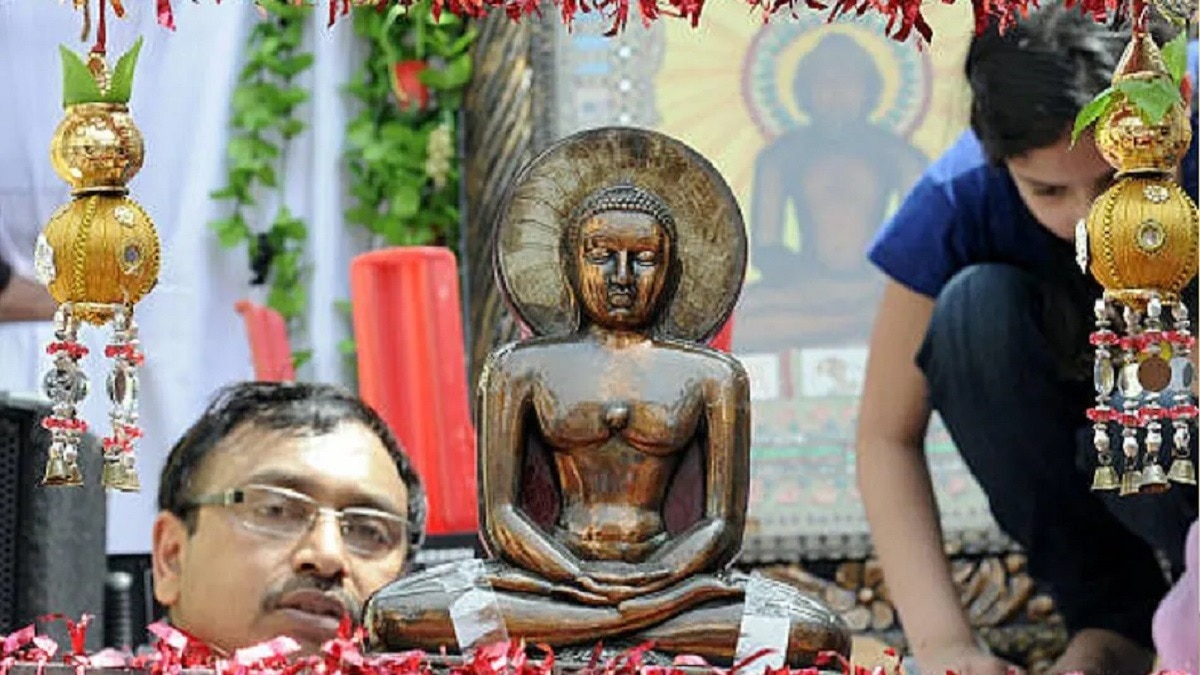Paryushan Parv, a significant festival in Jainism, is a time for introspection, spiritual growth, and seeking forgiveness. It emphasizes the principles of non-violence, self-reflection, and ethical conduct. The eight-day festival, celebrated by both Digambara and Svetambara Jain communities, is known as the “King of Festivals,” signifying its importance. The period starts with the first day of the dark fortnight (Krishna Paksha) of the lunar month of Bhadrapada (August/September).
Understanding the Essence of Paryushan Parv
Paryushan is deeply rooted in the teachings of Lord Mahavira, the 24th Tirthankara (spiritual leader) in Jainism. This festival commemorates the ultimate goal of Jainism: attaining liberation from the cycle of birth and death, or “moksha.” The festival’s name itself reflects its core message: “Paraya + Ushan” (which literally translates to “discarding + heat”). It symbolizes the shedding of negative karmas, the accumulated baggage of our actions that bind us to this worldly existence.
The Path to Moksha Through Paryushan
Paryushan Parv provides a platform for self-purification and ethical conduct, crucial for attaining moksha. The festival embodies the essence of Jainism’s core principles, including:
- Ahimsa: Paryushan emphasizes the importance of non-violence, not only towards other living beings but also towards all thoughts, words, and deeds. It highlights the need for compassion and kindness in all aspects of life.
- Jain Ethics: This festival encourages adherence to the five great vows (Mahavratas) – non-violence, truthfulness, non-stealing, celibacy, and non-attachment.
- Self-reflection: The central theme of Paryushan is self-examination. During this period, Jains undertake a deep inward journey, reflecting on their actions, words, and thoughts.
- Forgiveness: One of the fundamental tenets of Jainism is the act of forgiveness. Paryushan provides an opportunity to seek forgiveness from others and to forgive those who have wronged us.
Observances during Paryushan
Fasting: During the eight days of Paryushan, Jains observe various degrees of fasting, culminating in a complete fast on the final day. The fasts are accompanied by strict adherence to non-violence in every aspect of life, abstaining from any harmful actions or thoughts.
The Ten Days of Digambara Paryushan – A Detailed Breakdown
The Digambara community calls the Paryushan festival the “Dash Lakshana Parva” or the “Ten Marks of Conduct.” Each of these ten days focuses on specific ethical practices to help devotees cleanse their karmas and cultivate a state of equanimity:
Day 1 – Tamokshaya (Eliminating Darkness)
The first day focuses on conquering anger and resentment. Cultivating patience, humility, and understanding become paramount, guiding individuals towards eliminating negativity.
Day 2 – Alobhaksha (Renouncing Greed)
On the second day, individuals strive to eliminate jealousy and envy. By practicing compassion and generosity, they seek to cultivate a pure heart, free from the allure of material possessions.
Day 3 – Anaryaksha (Abandoning Lust)
The third day emphasizes conquering lustful desires. Through practicing restraint and purity, individuals aim to refine their desires and elevate them towards spiritual aspirations.
Day 4 – Satyaasha (Embracing Truth)
The fourth day highlights truthfulness and integrity. Speaking the truth with kindness and humility becomes a primary focus. It’s about aligning actions with thoughts, ensuring words and deeds match.
Day 5 – Aparigrahksha (Releasing Attachment)
The fifth day is dedicated to conquering attachment. It encourages relinquishing dependence on external possessions and material desires. Through detachment, individuals develop inner strength and contentment.
Day 6 – Asthyaachaksha (Controlling Sensory Organs)
The sixth day focuses on controlling the senses. Through disciplined behavior, Jains strive to overcome temptations, maintaining composure amidst sensory pleasures.
Day 7 – Aishvaryasha (Eliminating Pride)
The seventh day encourages humility and self-awareness. The focus is on releasing ego and pride, recognizing that we are all interconnected and dependent on one another.
Day 8 – Danaasha (Giving Charity)
On the eighth day, the emphasis is on offering gifts, such as food, knowledge, or protection, to those in need. This emphasizes the spirit of generosity and compassion.
Day 9 – Mithyabhimanashaktiksha (Removing False Belief)
The ninth day encourages individuals to challenge false beliefs and dogmas. It encourages critical thinking and seeking knowledge to understand truth.
Day 10 – Anukampaksha (Cultivating Compassion)
The tenth and final day focuses on developing compassion and loving-kindness towards all living beings. It embodies the core principle of Ahimsa, aiming to create a world free of violence and suffering.
Significance of Paryushan Parv
Paryushan is more than a festival; it’s a period of intense spiritual practice and self-transformation. It provides a framework for ethical and spiritual growth, helping individuals break free from the bonds of karma and ultimately achieve liberation (moksha).
The Essence of Paryushan:
- Ahimsa: Paryushan underlines the need for non-violence, compassion, and kindness towards all beings.
- Self-purification: It encourages individuals to examine their thoughts, words, and actions, leading to ethical conduct and self-improvement.
- Forgiveness: Paryushan encourages seeking forgiveness from others and forgiving those who have wronged us, fostering harmony and compassion.
- Moksha: The ultimate goal of Paryushan is to purify the mind and achieve liberation (moksha) by shedding karma.
- A time for giving: It emphasizes generosity, offering kindness, support, and knowledge to others.
Take Away Points
Paryushan is a powerful festival for individuals seeking spiritual growth and transformation. By embracing the festival’s essence of self-reflection, non-violence, forgiveness, and ethical conduct, individuals can work towards a more fulfilling life and contribute to creating a more peaceful and harmonious world.




